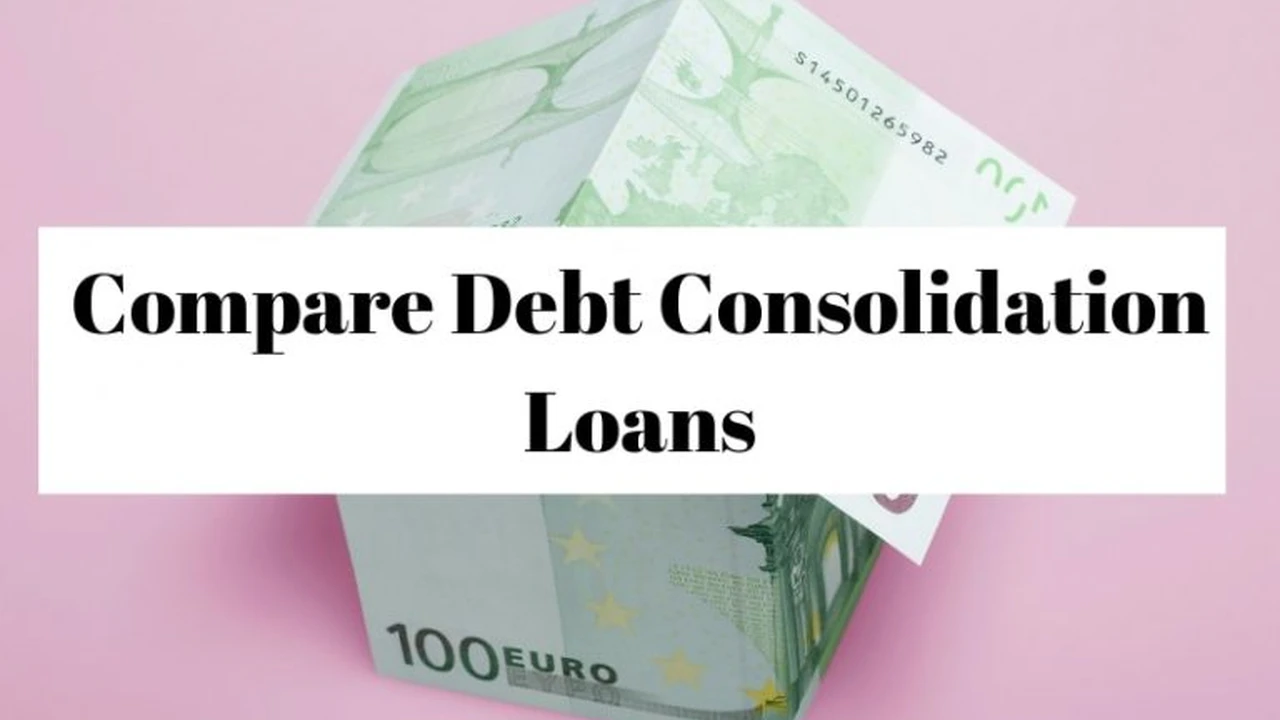Building a Strong Financial Future After Debt Consolidation
Strategies and tips for maintaining financial health and building wealth after successfully consolidating your debts.

Strategies and tips for maintaining financial health and building wealth after successfully consolidating your debts.
Building a Strong Financial Future After Debt Consolidation
Hey there! So, you’ve successfully navigated the choppy waters of debt consolidation. Give yourself a pat on the back – that’s a huge accomplishment! But let’s be real, consolidating your debt isn’t the finish line; it’s more like a really important pit stop. The real race, the one where you build a strong, resilient financial future, is just beginning. This isn't about just getting rid of debt; it's about setting yourself up for long-term financial health and even wealth building. It’s about making sure you don’t end up back in the same boat, or worse, a bigger one. So, let’s dive into some practical, actionable steps you can take right now to solidify your financial foundation and start building something truly great.
Revisiting Your Budget Post Debt Consolidation
Alright, first things first: your budget. You probably had one when you were consolidating your debt, right? Well, now it’s time for a serious upgrade. Your financial landscape has changed. You likely have one, more manageable monthly payment instead of several scattered ones. This is fantastic, but it also means your budget needs to reflect this new reality. Think of it as a fresh start, a clean slate. You need to understand exactly where every dollar is going. This isn't about deprivation; it's about awareness and control. Start by listing all your income sources. Then, meticulously list all your fixed expenses – rent/mortgage, your new consolidated debt payment, insurance, subscriptions, etc. After that, tackle your variable expenses – groceries, dining out, entertainment, transportation. Be honest with yourself. Where can you trim? Where can you optimize? Maybe you can cut down on those streaming services you barely watch, or pack your lunch more often. Every little bit counts. There are tons of great budgeting apps out there that can make this process a lot easier. For example, You Need A Budget (YNAB) is a popular choice that focuses on giving every dollar a job. It costs around $14.99/month or $99/year, but many users swear by its effectiveness in changing their money habits. Another solid option is Mint, which is free and automatically categorizes your spending, giving you a clear overview. For a more hands-on approach, a simple spreadsheet can work wonders. The key is consistency. Review your budget weekly, or at least monthly, to ensure you’re sticking to it and making adjustments as needed. This isn't a one-and-done task; it's an ongoing commitment to your financial well-being.
Building a Robust Emergency Fund After Debt Consolidation
Okay, so you’ve got your budget locked down. What’s next? An emergency fund, my friend. This is non-negotiable. Think of it as your financial superhero cape, ready to swoop in and save the day when unexpected expenses hit. And let’s face it, life loves to throw curveballs – a car repair, a medical emergency, a sudden job loss. Without an emergency fund, these curveballs can quickly send you spiraling back into debt, undoing all the hard work you put into consolidation. The general rule of thumb is to aim for 3 to 6 months’ worth of essential living expenses. If you’re self-employed or have an unstable income, you might even want to aim for 9 to 12 months. Start small if you need to. Even $500 or $1,000 is a great starting point. Set up an automatic transfer from your checking account to a separate, high-yield savings account every payday. Treat it like a bill you absolutely have to pay. The key here is accessibility but also separation. You want to be able to get to the money quickly if you need it, but you don’t want it sitting in your everyday checking account where it’s easy to accidentally spend. Online banks like Ally Bank or Discover Bank often offer higher interest rates on their savings accounts compared to traditional brick-and-mortar banks, which means your money works harder for you. They typically have no monthly fees and easy online transfers. For example, Ally Bank's Online Savings Account currently offers a competitive APY with no minimum balance. Discover Bank's Online Savings Account is similar, also offering a good APY and no monthly fees. The goal is to build this fund steadily and consistently. It’s not about getting rich; it’s about peace of mind and preventing future debt.
Smart Strategies for Avoiding New Debt Post Consolidation
This is where the rubber meets the road. You’ve worked hard to get out of debt, so the last thing you want is to fall back into old habits. Avoiding new debt requires a conscious effort and a shift in mindset. First, cut up those credit cards – or at least put them in a block of ice in your freezer. Seriously. If you don’t trust yourself with them, remove the temptation. If you absolutely need a credit card for emergencies or building credit, choose one with a low limit and pay it off in full every single month. No exceptions. Second, embrace delayed gratification. Before making a significant purchase, ask yourself: Do I really need this? Can I afford it right now without going into debt? Can I save up for it? This simple pause can save you a lot of financial heartache. Third, be wary of lifestyle creep. As your income potentially grows, it’s easy to start spending more. Resist the urge to upgrade everything just because you can. Stick to your budget and prioritize saving and investing. Fourth, educate yourself about personal finance. The more you know, the better decisions you’ll make. Read books, listen to podcasts, follow reputable financial blogs. Knowledge is power when it comes to money. Finally, identify your spending triggers. Do you tend to overspend when you’re stressed, bored, or celebrating? Once you know your triggers, you can develop strategies to counteract them. Maybe it’s going for a walk instead of online shopping, or calling a friend instead of hitting the mall. It’s about being proactive and intentional with your money.
Monitoring and Improving Your Credit Score After Debt Consolidation
Your credit score is like your financial report card, and after debt consolidation, it’s crucial to keep an eye on it. While consolidating debt can sometimes cause a temporary dip in your score (due to closing old accounts or opening a new one), the long-term effect should be positive if you manage your new consolidated payment responsibly. Why does it matter? A good credit score opens doors: better interest rates on future loans (like a mortgage or car loan), easier approval for apartments, and even lower insurance premiums. So, how do you monitor and improve it? First, get into the habit of checking your credit report regularly. You can get a free copy from each of the three major credit bureaus (Experian, Equifax, and TransUnion) once a year at www.annualcreditreport.com. Look for any errors or inaccuracies and dispute them immediately. Second, make all your payments on time, every time. Payment history is the biggest factor in your credit score. Set up automatic payments for your consolidated loan to ensure you never miss a due date. Third, keep your credit utilization low. If you still have credit cards, try to keep your balances below 30% of your credit limit – ideally even lower. Fourth, avoid opening too many new credit accounts in a short period. This can signal risk to lenders. Fifth, be patient. Building a good credit score takes time and consistent responsible behavior. Services like Credit Karma offer free credit scores and reports from TransUnion and Equifax, along with personalized recommendations. While not your official FICO score, it’s a great tool for tracking your progress. Many banks and credit card companies also offer free FICO score access to their customers. For example, Discover Card provides free FICO scores to all, even non-customers. The goal here is to cultivate a strong credit profile that reflects your newfound financial responsibility.
Setting New Financial Goals and Building Wealth
With your debt under control and an emergency fund in place, it’s time to dream big! What are your financial goals now? Maybe it’s buying a home, saving for your kids’ education, starting a business, or retiring early. Whatever it is, define it clearly. Make your goals SMART: Specific, Measurable, Achievable, Relevant, and Time-bound. Instead of just saying “I want to save money,” say “I want to save $10,000 for a down payment on a house in the next two years.” Once you have your goals, you can start allocating your extra cash flow (the money you’re no longer sending to multiple creditors) towards them. This is where wealth building truly begins. Consider opening a retirement account, like a 401(k) through your employer (especially if they offer a match – that’s free money!) or an Individual Retirement Account (IRA). For IRAs, you can choose between a Traditional IRA (tax-deductible contributions, taxes paid in retirement) or a Roth IRA (after-tax contributions, tax-free withdrawals in retirement). Many online brokers like Fidelity, Vanguard, and Charles Schwab offer low-cost index funds and ETFs, which are great for long-term investing. For example, Vanguard's S&P 500 Index Fund (VFIAX) has an expense ratio of just 0.04% and requires a minimum investment of $3,000. Fidelity's ZERO Large Cap Index Fund (FNILX) has a 0% expense ratio and no minimum. These are excellent options for diversified, long-term growth. Don’t forget about other savings goals too. Set up separate savings accounts for each goal, if that helps you visualize your progress. The key is to automate your savings and investments as much as possible. Treat your future self like a bill you have to pay. The sooner you start investing, the more time your money has to grow thanks to the magic of compound interest. It’s not about being an expert stock picker; it’s about consistent contributions to diversified, low-cost investments over the long haul.
The Importance of Continuous Financial Education and Adaptability
The financial world is always changing, and so are your personal circumstances. That’s why continuous financial education and adaptability are so crucial. Don’t just set it and forget it. Stay informed about economic trends, new financial products, and changes in tax laws. Read financial news, listen to podcasts like 'The Ramsey Show' (though take some advice with a grain of salt, as always) or 'Afford Anything' by Paula Pant, and follow reputable financial advisors on social media. Your financial plan should be a living document, not something carved in stone. Life happens: you might get a raise, have a child, change jobs, or face unexpected expenses. Be prepared to revisit your budget, adjust your goals, and tweak your investment strategy as needed. This doesn’t mean panicking every time the market fluctuates; it means being thoughtful and strategic. For instance, if you get a bonus, instead of splurging, consider putting a portion towards your emergency fund, increasing your retirement contributions, or making an extra payment on your consolidated loan. If you lose your job, you’ll need to quickly adjust your budget and tap into your emergency fund. The ability to adapt and make informed decisions will be your greatest asset in maintaining financial health and building lasting wealth. Remember, financial freedom isn't a destination; it's an ongoing journey of learning, adjusting, and growing. You've already taken a massive step by consolidating your debt. Now, keep that momentum going and build the financial future you truly deserve!
:max_bytes(150000):strip_icc()/277019-baked-pork-chops-with-cream-of-mushroom-soup-DDMFS-beauty-4x3-BG-7505-5762b731cf30447d9cbbbbbf387beafa.jpg)






